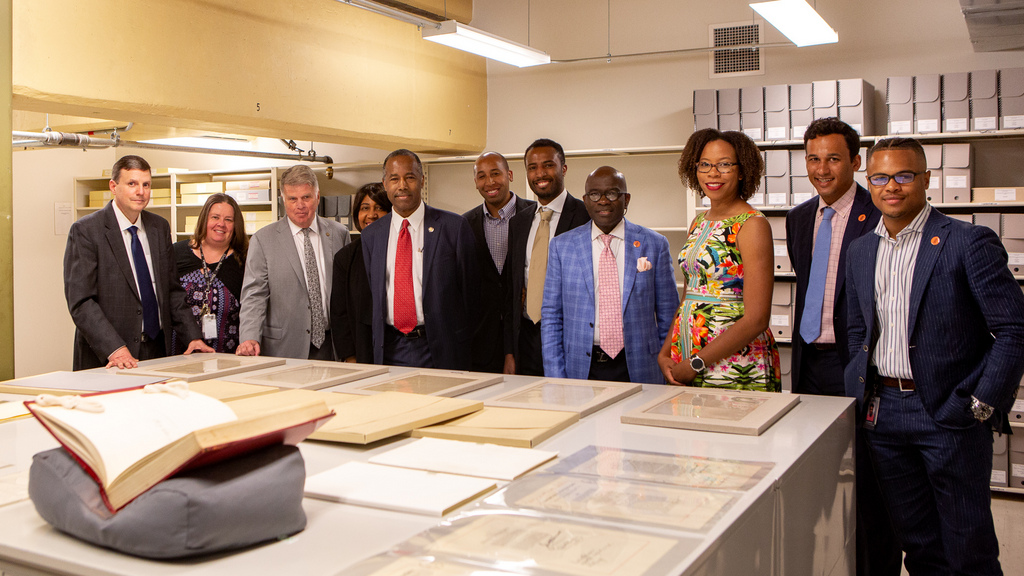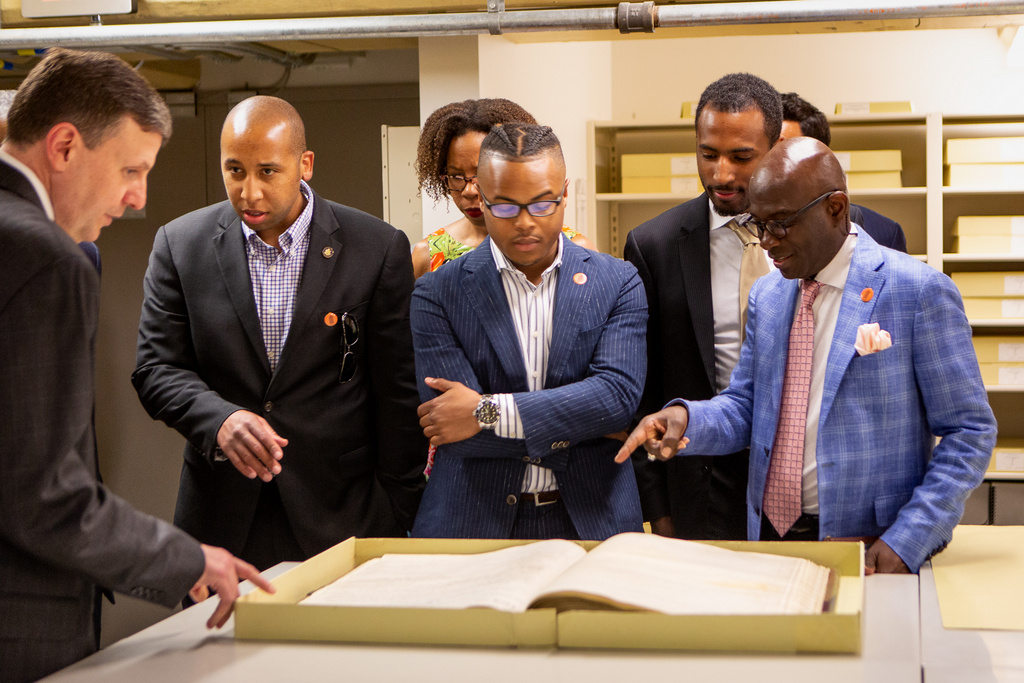[ad_1]
By Xavier Underwood
When most think of the National Archives, the Bill of Rights, Constitution of the United States, or the Declaration of Independence, known collectively as the “Charters of Freedom” comes to mind. I was excited to visit the National Archives on June 19 for another reason.
Albeit, we never learned in school the significance of June 19, also known as Juneteenth, my mother made sure that I was apprised of its gravity. Juneteenth celebrates the commemoration of the official ending of slavery in the United States. More than two years after President Abraham Lincoln signed the Emancipation Proclamation, Major General Gordon Granger arrived with Union soldiers in Galveston, Texas on June 19, 1865 with the news that the Civil War had ended and the slaves were now free.

154 years later, I found myself standing in one of the side-entrances of the National Archives awaiting Secretary Ben Carson’s arrival. I could not have anticipated the chilling effects of what I would soon come to face with. Now I must admit, I am a bit of a geek when it comes to history. In fact, I’ve sat and watched Jeopardy with my grandfather & uncle more times than I can remember.
Naturally, all I could think about were the series of National Treasure movies, as we navigated back passages through the highest of security checkpoints. Once we finally reached the “private stacks,” the most secure of the Archive’s vaults, I make my way through the wall of Secret Service agents and am greeted by the Secretary with a, “nice suit, Xavier.”
As I lean in towards one of the staffers from the Archives to get clarity on what I can & cannot take footage of, one of the agents jovially interjects, saying, “nothing,” and chuckles. Branch Chief in Research Services Trevor Plank led our immersion into American history.

Another intriguing man just to the side oversaw our tour; I’d soon learn that he was, in fact, the Archivist of the United States, David Ferriero. What I found most interesting chatting with him, was his in-depth knowledge of the 377 treaties signed between the U.S. and Native American nations. If it hadn’t already emerged, my inner-nerd was certainly kindled as we went on to discuss how the U.S. broke every last one.
Working our way around the table adorned with originals of the Civil Rights Act of 1964, Brown v. Board of Education, U.S. Housing Act of 1937 and the 13th & 15th Amendments, my eyes fell gazed upon a beautiful hand-stitched velvet chenille book. It was none other than the Louisiana Purchase. Penned in the diplomatic language of French, it was amazing to see the largest land purchase the U.S. have ever made right before my eyes.
After reveling in those priceless documents, Plant put a pair of white gloves on and carefully opened the next box. “That all persons held as slaves,” within the rebellious states, “are, and henceforward shall be free,” were words that resonated more now than ever.
Centuries old – the actual Emancipation Proclamation – provided an ever-present understanding of the strides that our beloved United States have made. Even the seal, which now resembled a smudge, emboldened the veracity of this historic document.
I think the only thing that could’ve made this sobering experience more special, would’ve been an offering of Donald Glover’s “Juneteenth Juice” or “Frozen Freedom Margarita,” from the FX show Atlanta.
Xavier Underwood is head of production for Howard Stirk Holdings, the nation’s largest minority broadcaster.
[ad_2]
Source link
